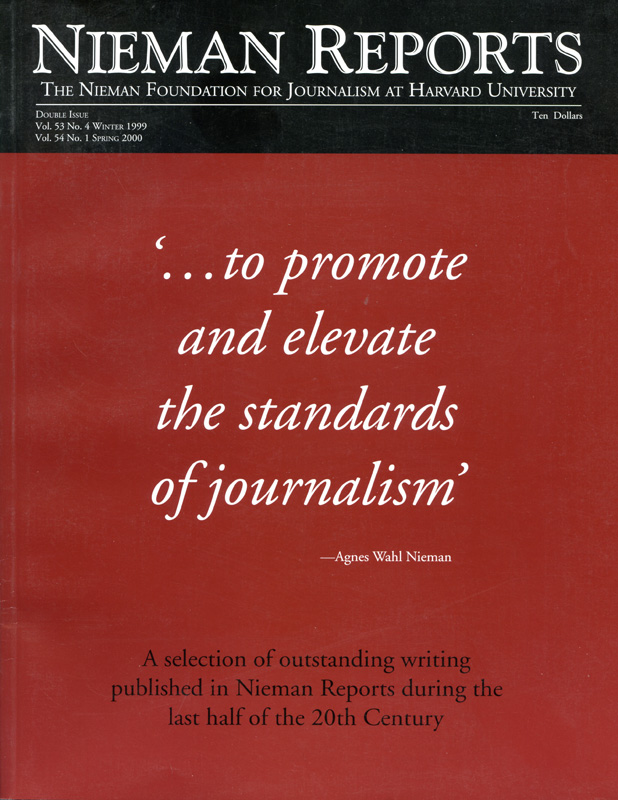[This article originally appeared in the September 1971 issue of Nieman Reports.]
…at no time in history has the world needed the professional journalist more.
The strident, partisan voices of today’s society contribute heat but no light to a society drowning in a torrent of problems.
It is the journalist’s task to be a clear, cool and objective voice bringing some reason to our time.
I said “objective,” not “official” voice as desired by the politicians. The world’s dictatorships have plenty of official voices.
Objective—not activist as desired by some. There are enough activist voices now without journalists adding theirs and destroying public confidence in the profession.
Quibbling, equivocating, caviling critics claim it is impossible for a journalist to be objective.
…[I]t isn’t all that difficult to be impartial.
First, the journalist’s job is to gather all the facts—I repeat—all the facts, not just those on one side. He then must present them fairly to both sides. He lets the reader decide which side he feels is correct. This may be a very unpopular thing to do, but it is not technically or intellectually difficult. Certainly, no more difficult than the task of a judge in weighing evidence.
A word of caution for a reporter seeking the facts. The areas in which he knows little and searches for information will not cause him the most difficulties.
In the words of Jack Knight of the Knight Newspapers, one of the real professionals of our time:
“It’s not the things we know but the things we think we know and don’t that cause us all the trouble.” The moral—take nothing for granted.
…at no time in history has the world needed the professional journalist more.
The strident, partisan voices of today’s society contribute heat but no light to a society drowning in a torrent of problems.
It is the journalist’s task to be a clear, cool and objective voice bringing some reason to our time.
I said “objective,” not “official” voice as desired by the politicians. The world’s dictatorships have plenty of official voices.
Objective—not activist as desired by some. There are enough activist voices now without journalists adding theirs and destroying public confidence in the profession.
Quibbling, equivocating, caviling critics claim it is impossible for a journalist to be objective.
…[I]t isn’t all that difficult to be impartial.
First, the journalist’s job is to gather all the facts—I repeat—all the facts, not just those on one side. He then must present them fairly to both sides. He lets the reader decide which side he feels is correct. This may be a very unpopular thing to do, but it is not technically or intellectually difficult. Certainly, no more difficult than the task of a judge in weighing evidence.
A word of caution for a reporter seeking the facts. The areas in which he knows little and searches for information will not cause him the most difficulties.
In the words of Jack Knight of the Knight Newspapers, one of the real professionals of our time:
“It’s not the things we know but the things we think we know and don’t that cause us all the trouble.” The moral—take nothing for granted.



